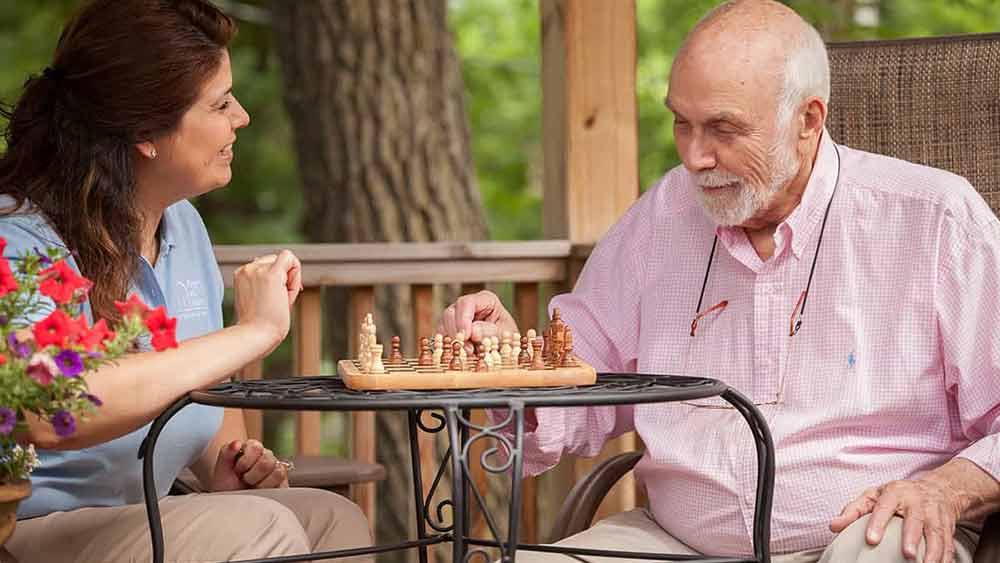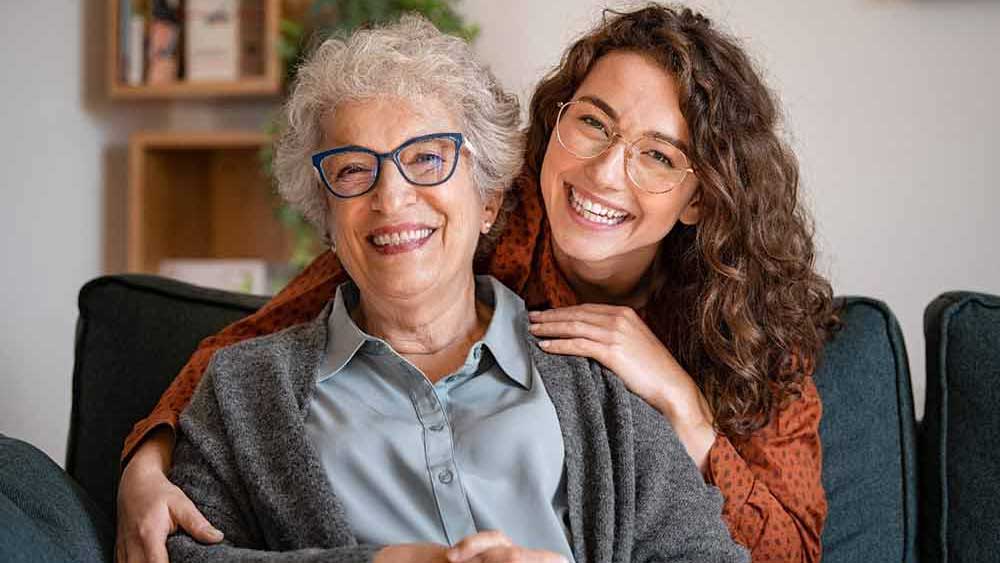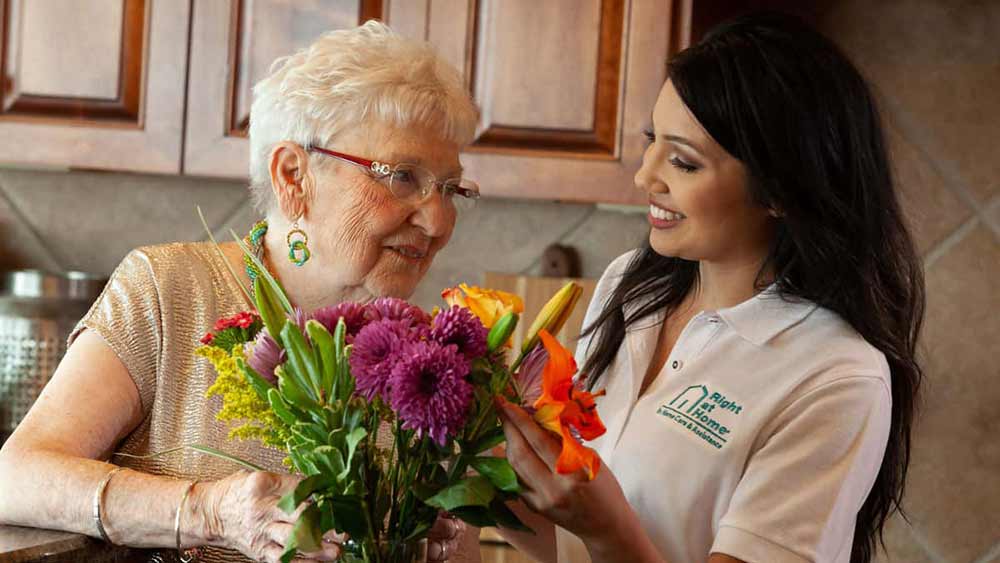

“Should Old Acquaintance Be Forgot”
Genealogy shows are all the rage these days. Programs like “Finding Your Roots” and “Who Do You Think You Are?” feature hosts who use DNA evidence and genealogy research to reveal the ancestry stories of celebrity guests. It’s striking that the guests often are unaware of family history that goes only a few generations back. “I never knew my great-grandfather was a war hero!” or “I had no idea I had Chinese ancestry,” they might say.
Yet consider that in our own homes and at our family reunions, there are family members who could provide a wealth of memories. Our grandparents and great-grandparents have seen things we’ve only read about in history books. They sometimes recall family history conversations they had with their own elders, moving the story back 100 years or more! Almost everyone has been “touched by greatness” somehow in their lives. Some stories are funny, some are sad, some capture the spirit of their times. No wonder many cultures have a saying that translates as “Every elder is a library.”
And yet the value of these stories isn’t always recognized at the time. Today, a high schooler who is interested in World War II history might never have had a conversation with their own great-grandfather who fought at Midway. A grandchild who’s into organic farming might never have talked with their great-grandmother about her girlhood kitchen garden.
Encourage seniors to consider how much future generations would treasure information about their heritage. “My great-great-grandfather was born into slavery,” reported a scholar of Black history. “But we don’t know too much about his family or their experiences. He would tell my great-grandmother, ‘Those were terrible times, best forgotten.’ If only we had been able to talk to him.”
It’s sad that so few older adults talk to young people about their experiences. Researchers from the University of Arizona recently recorded hours of conversation among people of various ages. “We found that the older individuals in our study shared fewer memories,” said lead study author Aubrey Wank. “Additionally, we found that the level of detail also decreased with older age as people were describing these memories.”
While the team focused on age-related changes in the brain that might be responsible for this, other studies show seniors might keep their memories to themselves because they believe younger people simply aren’t interested. And yet, reminiscing is an absolutely vital process of aging—it could even be considered a developmental task, and should be encouraged. It is beneficial in many ways:
“Life review” provides a heightened sense of personal identity and meaning. As they recall their accomplishments and come to terms with disappointments, older adults create a “big picture” of how the world was as they made their individual journey through it.
Reminiscing enhances self-esteem. Studies show that seniors who are encouraged to share their memories of events, accomplishments and adversities they’ve overcome experience an increased sense of self-worth.
Reminiscing promotes socialization and bonds between people. Think what happens when you first make a friend: You likely chat quite a bit as you fill each other in on your life histories. Building a friendship is a sort of orientation. This also is a great way for professionals, such as in-home caregivers, to gain a full picture of an older client.
Reminiscing strengthens intergenerational connections. “Grandpa, tell me again about the time your scout troop got lost!” When an older family member shares stories about their own childhood, it helps youngsters relate. Studies show these recollections also give kids an improved perception of older adults—an effective way to combat ageism in our society.
Tailored reminiscing activities benefit people with Alzheimer’s and other memory loss. These conditions affect a person’s ability to remember, but psychologists speak of the “reminiscence bump,” meaning that older adults’ most vivid memories are of events from years ago. Today, reminiscence therapists provide cues and prompts to help patients access memories, which provides a sense of well-being and an emotional boost for people with dementia.
Here are tips and ideas families can use to facilitate older loved ones sharing their memories.
Help your loved one create a memoir. Start with a questionnaire with interesting prompts: What was your favorite class in school? How did you meet your spouse? What is your earliest memory? Did you witness any historic events? What were your parents like? Monumental stories are great, but so are small, childhood anecdotes. (To get you started, check out this infographic in the Right at Home blog.)
Go through old photos. How often we see a box of old photos at an antique or resale shop, with no clue who the people are. Encourage your loved one to tell you about the people, places and events in the photos. You can curate an annotated album—now there’s a precious treasure for our descendants!
Make it a distance activity. If you’re connecting with family mostly by video chats these days, you might experience awkward silences when nobody has much to say. This is a perfect time to get an interview going.
Create a high-tech autobiography. Make a video of your loved one’s recollections, and incorporate photos and other media.
Let your loved one know you are interested in their recollections, and create an open atmosphere. Some recollections might be painful or hard for your loved one to share. If they seem stuck in a particularly disturbing past experience, counseling might help. It’s never too late to process some of the life events that still trouble us.
What if your loved one repeats the same stories again and again? Sometimes family are concerned if an older loved one returns to the same anecdotes over and over. It might be hard to be patient. But try not to say, “You already told me that!” Instead, ask a few questions—and remember that a response from you might not be necessary. Working through these memories is an important part of life review.
Use a multisensory approach for loved ones with memory loss. Photos, recordings, tastes and smells can help them access memories. Chat about things they enjoyed in the past—hobbies, travels, sports, foods or pets. If their memories aren’t accurate, that’s OK. It’s the process that’s important. Don’t correct them.
Right at Home supports older adults with Alzheimer’s and other memory loss.
If your loved one is living with cognitive change, Right at Home can help. We can assess the needs of your loved one to create a person-centered care plan that focuses on their abilities and fits the unique circumstances of your family. We offer specialized nonmedical home care services, with caregivers who are trained to recognize changes in your loved one’s behavior. We’re committed to providing the care that’s right for your loved one and giving you the peace of mind you deserve. Please refer to our Alzheimer’s, Dementia and Cognitive Change Services webpage for more information.







